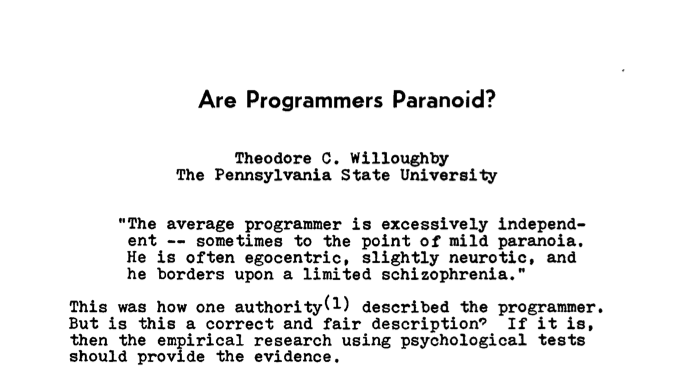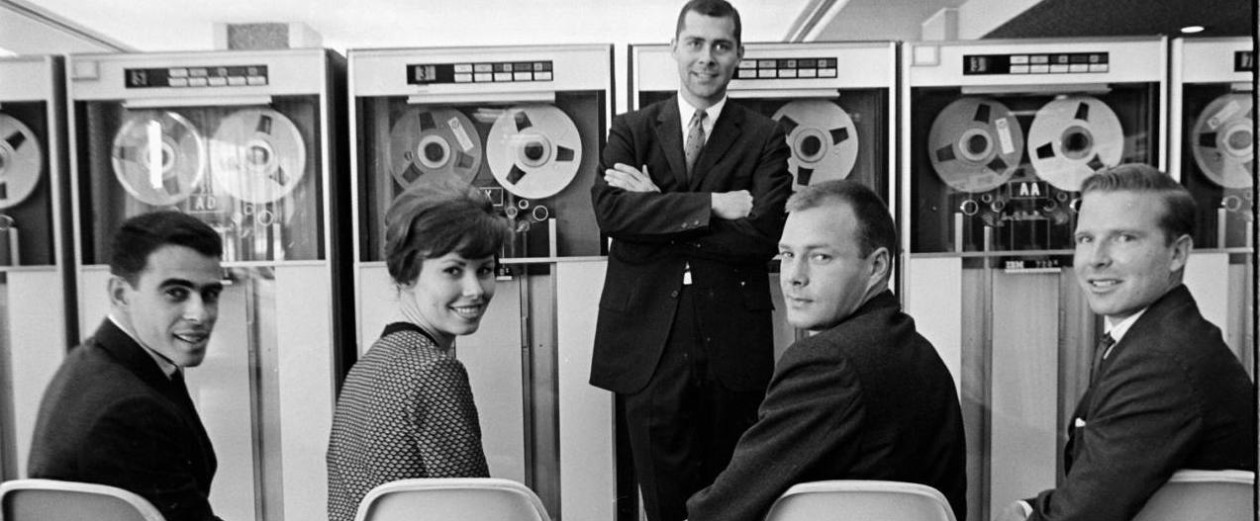 The notion that computer programmer is not just an occupation but a personality type has a long history. In 1968 the systems consultant Dick Brandon gave a talk at the ACM National Conference on the “Problem in Perspective” (the problem here being the problem of programming labor, one of the more significant “software crises” of the 1950s and 1960s) in which he described the “Programmer Pysche”:
The notion that computer programmer is not just an occupation but a personality type has a long history. In 1968 the systems consultant Dick Brandon gave a talk at the ACM National Conference on the “Problem in Perspective” (the problem here being the problem of programming labor, one of the more significant “software crises” of the 1950s and 1960s) in which he described the “Programmer Pysche”:
Although computer programming has not been around long enough for biological inbreeding to be considered a problem, the personality traits of the average programmer almost universally reflect certain negative characteristics.
The average programmer is excessively independent — sometimes to the point of mild paranoia. He is often egocentric, slightly neurotic, and he borders upon a limited schizophrenia. The incidence of beards, sandals, and other symptoms of rugged individualism or nonconformity are notably greater among this demographic group. Stories about programmers and their attitudes and peculiarities are legion, and do not bear repeating here.1 Dick Brandon, “The Problem in Perspective”, Proceedings of the 1968 23rd ACM National Conference (1968).
Although Brandon’s characterizations are at least somewhat tongue in cheek, they were close enough to the reality of common perception to prompt a follow-up study by Dr. Theodore Willoughby of Pennsylvania State University. Willoughby concluded that programmers taken as a group were not, in fact, either paranoid, schizophrenic, or otherwise psychologically deviant. Instead, he suggested that such characterizations were a reflection of the “generation gap” (or perhaps “professional identity gap”) between managers and programmers (or what I refer to in The Computer Boys as “organizational territory disputes”). In any case, it is good to know that, statistically speaker, although your IT Guy might be odd, he is probably not paranoid…
- 1Dick Brandon, “The Problem in Perspective”, Proceedings of the 1968 23rd ACM National Conference (1968).

 Follow
Follow